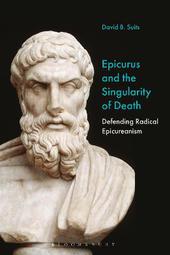
|
Epicurus and the Singularity of Death: Defending Radical Epicureanism
Hardback
Main Details
Description
In his Letter to Menoeceus, the ancient Greek philosopher Epicurus states that 'death is nothing to us'. Few philosophers then or since have agreed with his controversial argument, upholding instead that death constitutes a deprivation and is therefore to be feared. Diverging from the current trend and sparking fresh debate, this book provides an imaginative defense of the Epicurean view of death. Drawing on Epicurus's Principal Doctrines, Lucretius's De Rerum Natura and Philodemus's De Morte, David Suits argues that the usual concepts of harm, loss and suffering no longer apply in death, thus showing how the deprivation view is flawed. He also applies Epicurean reasoning to key issues in applied ethics in order to dispute the claim that there can be a right to life, to defend egoistic friendship, and to consider how Epicureanism might handle wills and life insurance. By championing the Epicurean perspective, this book makes a valuable contribution to the contemporary philosophical debate about death.
Author Biography
David B. Suits is Professor Emeritus in the Department of Philosophy, Rochester Institute of Technology, USA.
ReviewsDavid B. Suits' new monograph on the Epicurean view of death approaches the subject with much-needed, serious philosophical interest ... I would recommend the book to anyone interested in the Philosophy of Life or Death, as well as the modern field of Philosophy as a Way of Life ... the work is valuable for thinking through how Epicurean theories remain relevant and how they can still be utilized to address important concerns in the modern world including life and death. * Bryn Mawr Classical Review * Written with verve and wit, David Suits' Epicurus and the Singularity of Death is a masterful defense both of the controversial Epicurean view that death is not a harm to the one who dies and of the startling implications that this has for many issues in applied ethics. * James Stacey Taylor, Professor of Philosophy, The College of New Jersey, USA *
|